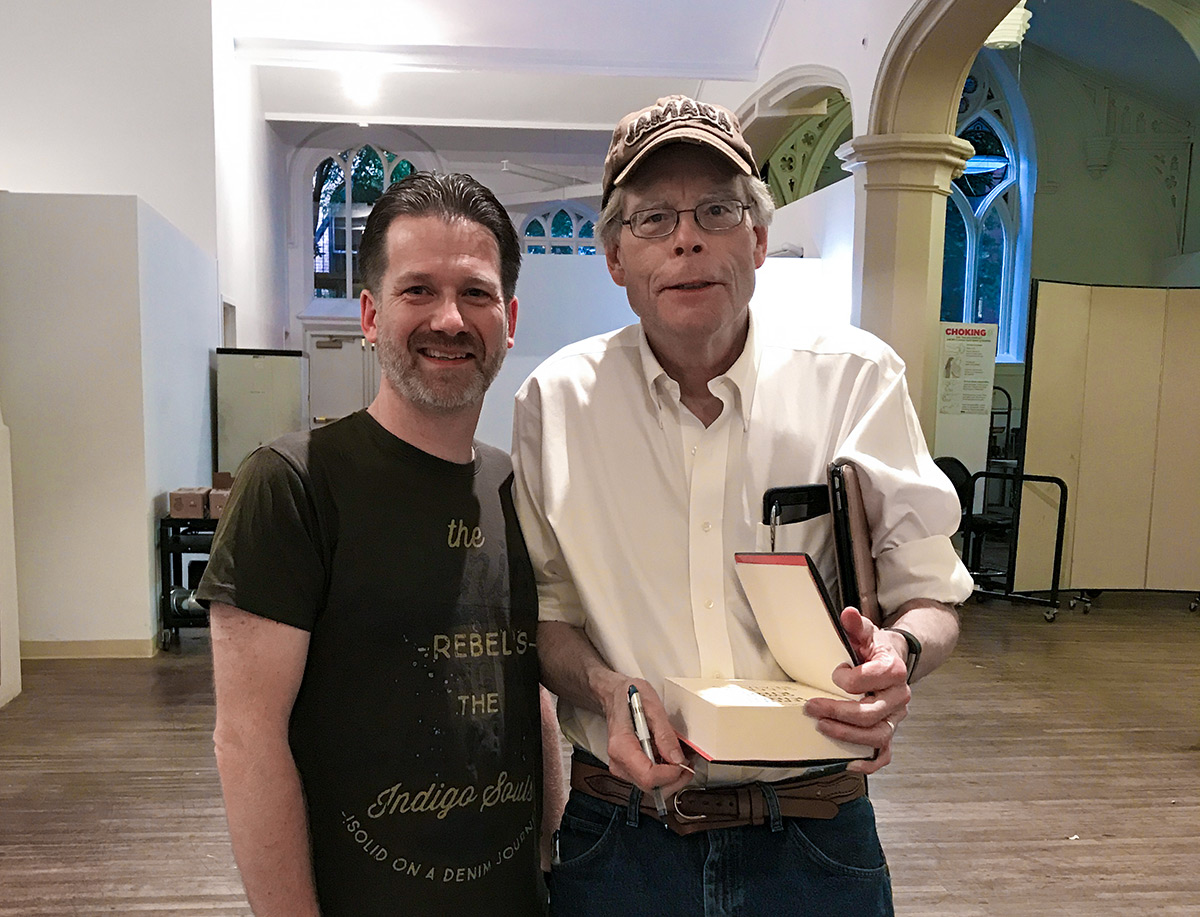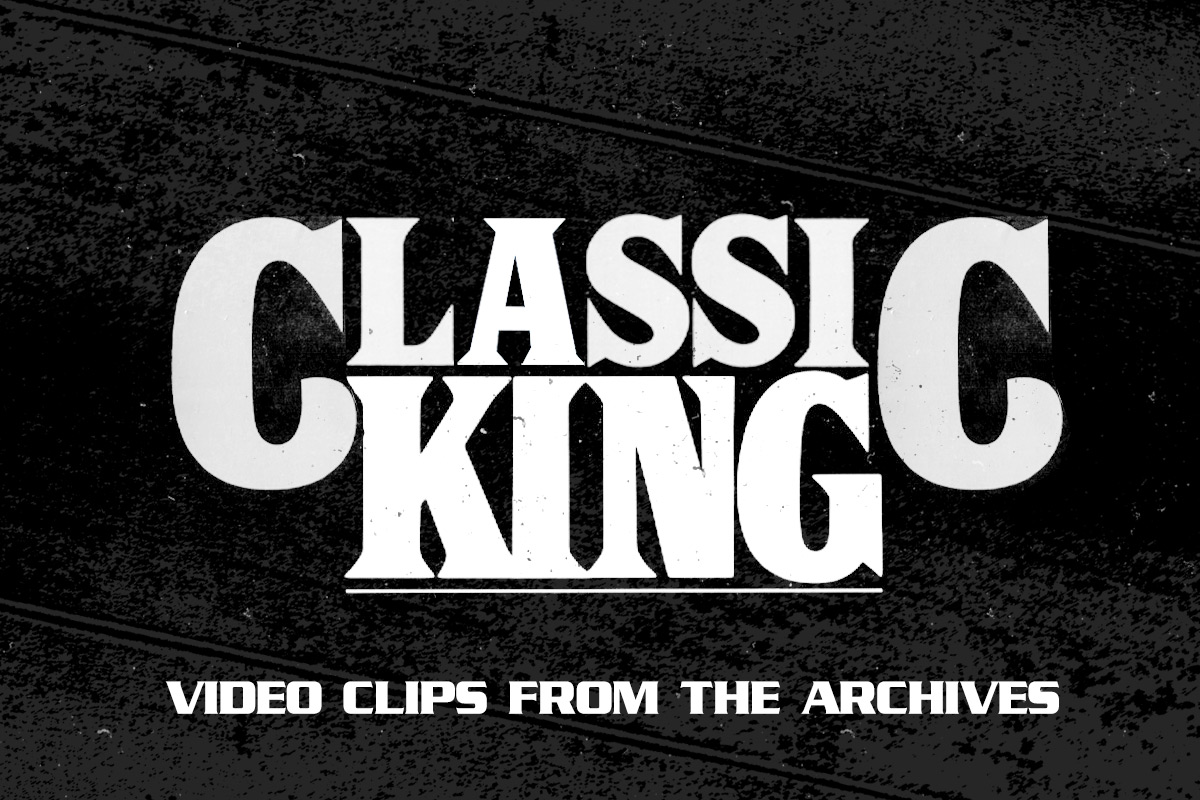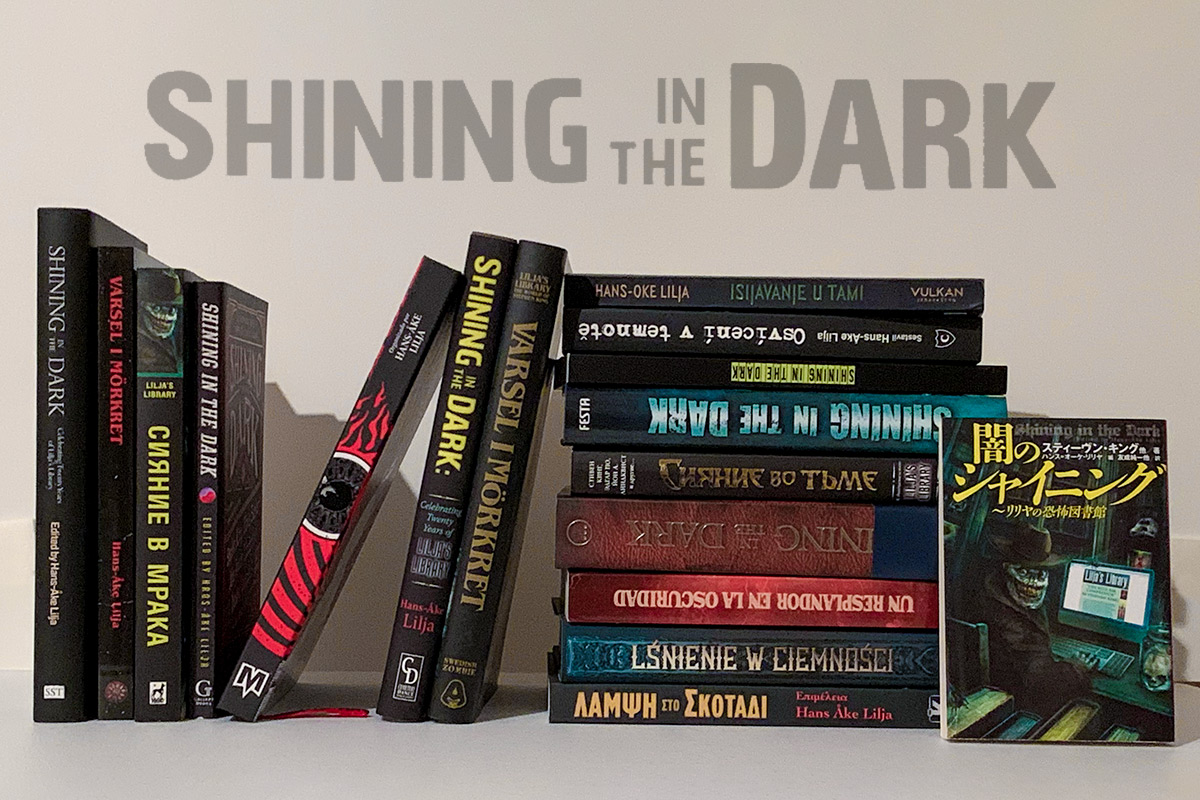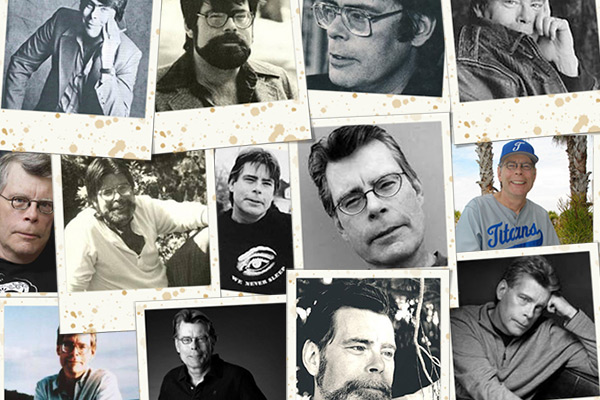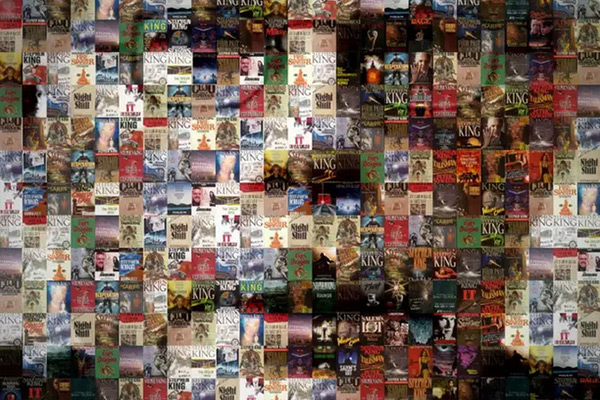Peter Straub
Posted: December 22, 2000
_
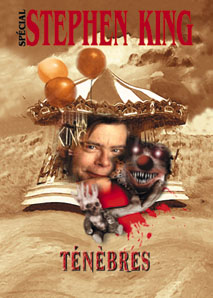 This wonderful interview with Peter Straub was first published last year in Tenebres special double Stephen King issue no 11/12. There it was published in French and here it appears for the first time in English!
This wonderful interview with Peter Straub was first published last year in Tenebres special double Stephen King issue no 11/12. There it was published in French and here it appears for the first time in English!The address to their homepage is http://www.tenebres.com so go there now to learn more about them!
I also want to thank them a lot for letting me publish this interview on my site. Thanks!
All material is copyrighted (c)Tenebres 2000, printed here with permission and may not be reprinted elsewhere without permission from Tenebres.
Tenebres : Peter Straub, if you were the character of a novel that you'll never write, what would the opening paragraph - describing this character - read like ?
Peter Straub: "Porter Strum, one of those men who could be either an accountant or a contract killer, moved unhesitatingly to the bar, ordered a vodka martini, produced a cigarette from nowhere, and lit it with a gold Dunhill. His dark, double-breasted Armani suit almost hid his paunch, and his bald head gleamed. Behind the reptilian lenses of his glasses, his narrow eyes surveyed the room. In answer to a question from Polly, the bartender, he said, "Like wigsville, baby, dig? All the blues ain't in B flat, and Harold Arlen didn't write 'Stormy Weather" for nothin'." Strum's voice was filled with dangerous laughter. Later, after all the excitement had died down, Polly told everyone that in spite of being old, fat, and bald, he had looked a great deal like the young Clint Eastwood."
Tenebres : As a friend and a writer, if you had to describe Stephen King (the friend and the writer), what would you say?
Peter Straub: I'd say that he is a brilliant, funny, generous, compassionate man whose character is made up of layer upon layer. I'd say what you see is not only not what you get, it isn't even what you see. I'd say he is a mansion containing many rooms. I'd say that all of this makes him wonderful company. As a writer, he is profoundly imaginative, immediately engaging, and humane.
Tenebres : As writers, what are the basic differences between you and SK ? And what do you have in common ?
Peter Straub: He is more straightforward than I am, far less given to complexity of both plot and characterization. This relative simplicity is a great strength. We both love the sweep of narrative; we share an old-fashioned love for the novel form. We are both attracted to grandeur, and we are intensely interested in the various manifestions of evil. And I guess our senses of humor must coincide at manypoints, because we can reduce each other to helpless laughter.
Tenebres : Among SK's books, is there one that you would have liked to write ? And among yours, is there one - in your opinion - that SK would have liked to write ? And why ?
Peter Straub: I would be very proud to have been the author of The Shining. As for Steve, I can't say, but I think there were some aspects of Shadowland he rather enjoyed. When I read IT, which I admired unreservedly, I had the feeling that he was sort of playing my game, packing stories into wider stories, and doing it beautifully, in fact probably doing it better than me.
Tenebres : Do you remember the first time you met SK ? Can you tell us about this meeting ?
Peter Straub: I first met Steve at Brown's Hotel, a nice, cozy little hostelry in London. I remember being impressed by his size - Steve is even taller than Porter Strum! - and his volubility, also his humor and intelligence. We had been trying to get together for weeks, and when we finally spotted each other in a clubby, chintz-and-leather interior near the hotel's bar, he yelled my name, really yelled it, and threw up his arms. We went into the bar and had a longconversation, a lot of it about money. All writers talk about money. We felt each other out about the books we liked and discovered a good deal of common ground. I'll never like Shane Stevens as much as he does, and he'll never like The Good Soldier at all, but we agreed on Raymond Chandler and a bunch of other crime writers. In the main, I came away with the impression of having met a very driven, passionate, aware, interesting and valuable man, one with whom I had struck up an instant frienship that pleased me greatly.
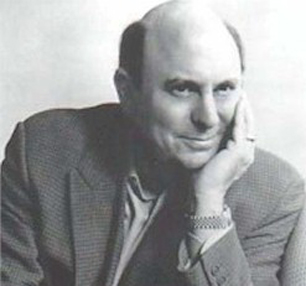 Tenebres : Let's get a closer look at The Talisman. Do you remember the chain of events that lead to the birth and the realization of this project ?
Tenebres : Let's get a closer look at The Talisman. Do you remember the chain of events that lead to the birth and the realization of this project ?Peter Straub: I think Steve raised this possibility the first night he and Tabby came to our house on Hillfield Avenue, London N8. Our wives had gone to bed, and we were sitting up, gabbing away like maniacs and drinking an enormous quantity of beer. "We ought to write a book together," he said, or something similar, and right away we tried to work out when we could do that. It turned out that previous committments meant that we couldn't begin for four years. We made a date to work together four years hence and eventually went to bed.
Over the intervening years, we now and then talked about what we could do. When the time drew near, my wife and I went to Portland, Maine, to stay with the Kings for something like three or four days, so that he and I could expand our vague ideas into an actual story, or at least the outline of a story. All we had at that point was the situation from a story Steve had begun in college and then abandoned, that of a boy who must find some sacred object that will save his dying mother's life. Most of the rest emerged in the course of a series of, I think, twenty-mile car journeys from the King house to a shopping mall in Portland: we had to keep driving back and forth because Steve kept forgetting to bring something or other he needed in order to make the right purchase. Then he found that he'd brought the wrong thing, and had to try again. We went back and forth three times, I believe, so we spent hours in the car. These hours were very useful. We managed to work out most of the essential components of the story.
Tenebres : Can you tell us, in details, how you organized the work on The Talisman between the two of you, from the first draft to the corrections, the schedule you had, etc ?
Peter Straub: By this time, my wife and I had moved back to America, and when we were ready to begin, Steve drove from Maine to my house in Westport, Connecticut, to start the actual writing. He stayed maybe four days, during which we wrote the first fifteen or tweny pages, taking turns at my word processor. Then he went back to Maine, and I spent ten days writing up a seventy-page, single-spaced outline based on everything we had discussed. After that, he continued from where we had left off, transmitted his pages to me, and I picked up from his last sentence. We went on like this for about a year and a half, each of us firing off hundred-page, hundred-and-fifty-page segements at intervals of a month or so. When we were nearing the end, my wife and I went back to Maine, and Steve and I wrote the last fifty or so pages at his house, taking turns sitting down before his machine. Not long after submission, our editor joined us at Steve's place, and we went through the book, making whatever cuts and chas seemed necessary.
Tenebres : Do you have anecdotes to share with us regarding the writing of The Talisman ?
Peter Straub: When my wife and I went to Maine for the final push, I brought along a jazz record by Michel Legrand called "After The Rain," which featured two of my favorite saxophonists, Phil Woods and Zoot Sims. I played this record whenever it was my turn to sit in the chair and write a couple of paragraphs. When it was Steve's turn, he put on a record called "Electric Avenue," by Eddy Grant. He loved a certain moment when something in the background made a sound exactly like a diving board going boing after someone has just bounced off it. At one point, I was typing away, and Phil Woods and Zoot Sims were playing simultaneously, sort of winding their sounds around each other. Steve said, "Hey, Peter! They're like you and me!"
Tenebres : Did you get to discover new aspects of SK during this project ?
Peter Straub: Sorry, but I think this question is too fannish to answer.
Tenebres : The Talisman was published 16 years ago. In retrospect, what do you think of the book ? Did you read it again recently ? Would you and SK write it the same way today ?
Peter Straub: I reread it about six months ago, as preparation for the new one. It struck me as even better than I had remembered it, exciting but also very tender. There's a lot of nice writing in the book. If it has one flaw, it's that it is too long, and if we were to write it today, we would try to keep that from happening.
Tenebres : A few months ago, you and SK announced your intention to write Talisman 2. How and when did the desire to work together again appear ?
Peter Straub: Steve came up with the notion of collaborating again. He remembered an idea I had mentioned during the first book, and I guess it intrigued him. Since he is an honorable guy, he asked me if I would consider working with him on a book based on this old idea. That was about a year and a half ago. Our minds seemed to be converging, anyhow, since both of us had alluded to "Rebecca" and "Bartleby, the Scrivener" in our most recent works. What are the odds of two writers fastening on to those particular, very different tales, more or less at the same time? It dseemed like an excellent omen.
Tenebres : Why chose to write a sequel to The Talisman instead of doing something completely different from that first experiment ? Did you and SK have other ideas that you decided not to follow ?
Peter Straub: A sequel to our first effort just seemed the best, most logical thing to do. In fact, I don't think it ever occurred to either one of us to write anything but a sequel. Here was all this material that we had evolved between us, and it was inevitable that we should decide to make use of it.
Tenebres : We know from the press that Talisman 2 will be about an older Jack Sawyer and much darker than the first book. Can you tell us a little more about it ? Do you think that it will also be a "Bildungsroman" ?
Peter Straub: Well, it can't be a Bildungsroman, since Jack Sawyer is already an adult. I can tell you that he is living in a small town in Western Wisconsin and has retired, for reasons obscure to him , from a very promising career as a Homicide detective in Los Angeles. A series of hideous crimes gradually brings himback into involvement with the world.
Tenebres : Same question as # 7, but for the Talisman 2, if you changed anything in the way you and SK work together.
Peter Straub: This time, we worked out a lot of the basic material by e-mail, writing back and forth almost daily for a couple of months. Then I went to a place the Kings had rented in Florida, and Steve and I spent five days hammering out a map of the action. It was like a fast-forward version of the novel. When I went back home to New York, we began writing fifty-page installments and sent them back and forth as e-mail attachments. We're still doing that. Right now, we are a little more than two hundred pages along.
Tenebres : Last - and ritual- question ; if you were on your deathbed (not that we wish you any harm) what would be your famous last words addressed to SK ?
Peter Straub: My last words are to be addressed to Steve King? Let's say he has come to say goodbye to me. I would probably tell him that I loved him, and that it had been a tremendous pleasure to know him and work with him. Then I would remind him of the last words James Ellroy heard from his dying father, and we'd both crack up. I can't tell you what those words were, though, they aren't suitable for young readers.

